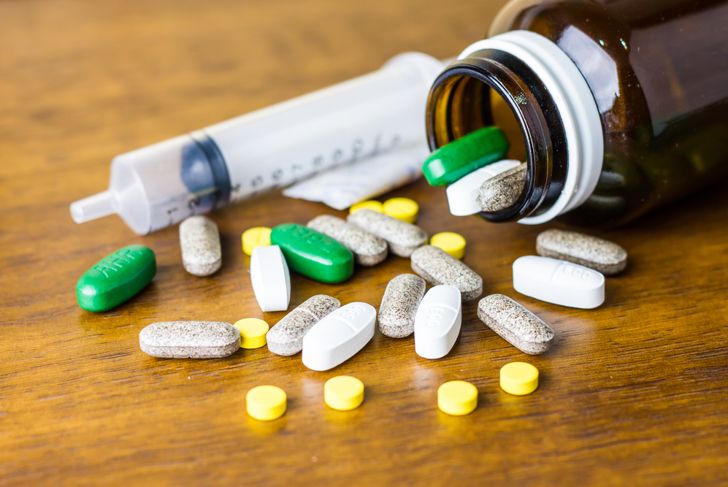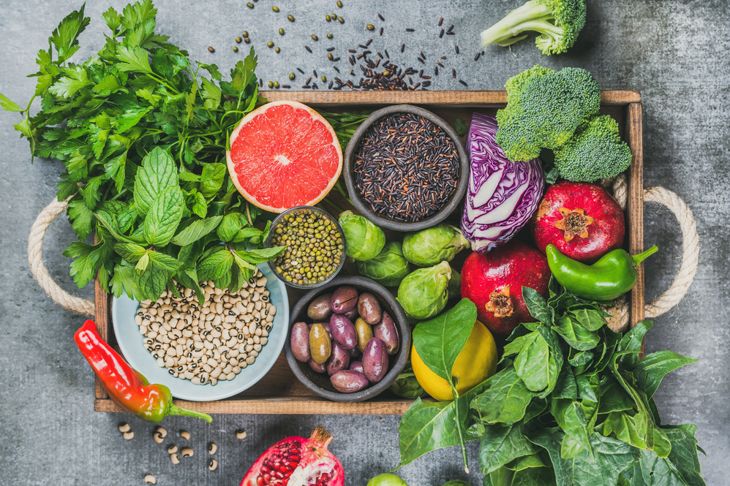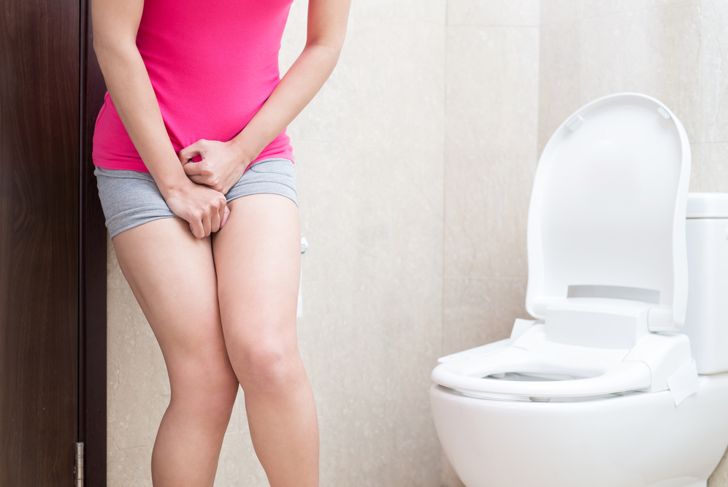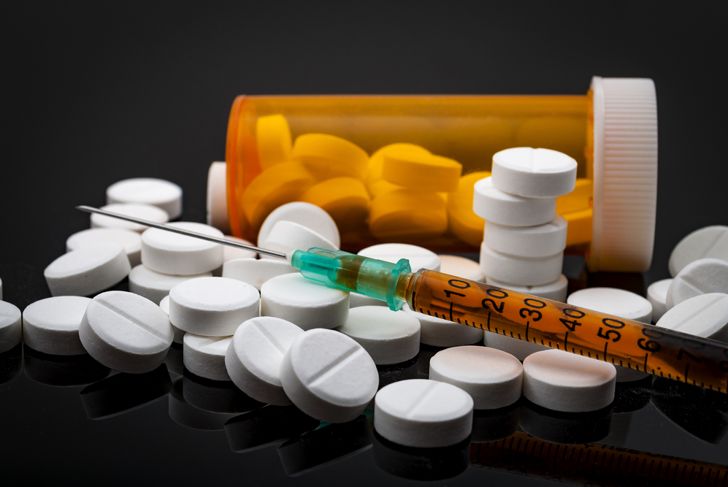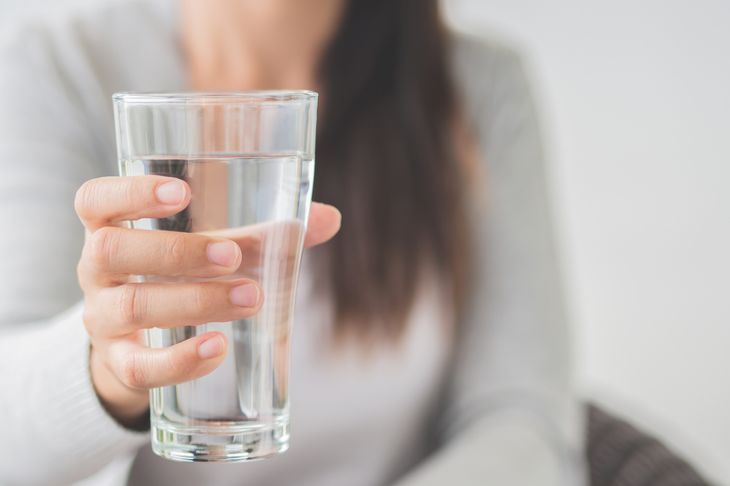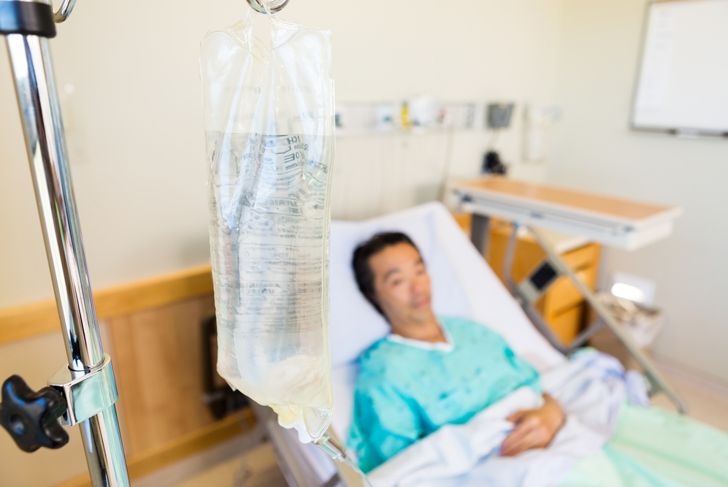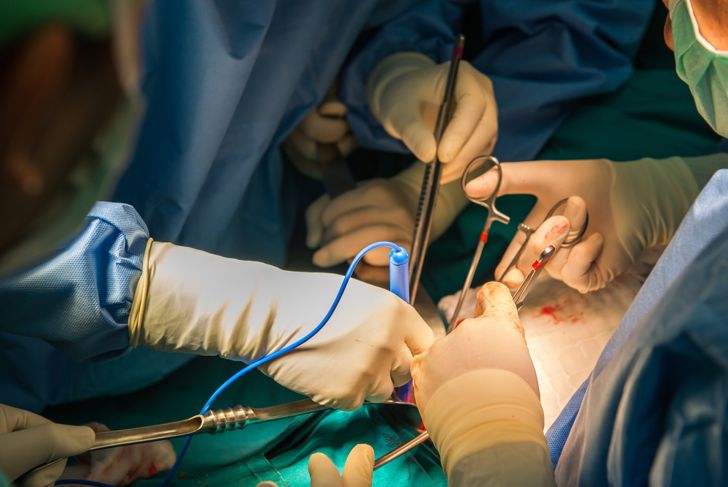Pyelonephritis, also known as a kidney infection, is the inflammation of the kidney due to a bacterial infection. The primary cause of pyelonephritis is an untreated urinary tract infection because of which bacteria travel to the kidney. Other than this, people who have kidney stones, diabetes, bladder tumor, or an obstruction in the urinary tract are more likely to be diagnosed with pyelonephritis than others. The most common symptoms of pyelonephritis are painful urination, blood in the urine, cloudy and foul-smelling urine, high fever, and pain in the groin or abdomen area. These symptoms generally start within two days of the infection but begin to worsen if pyelonephritis is left untreated. There are many ways in which the symptoms of pyelonephritis can be treated. Some of these involve making dietary changes while others involve taking medication. Regardless of which treatment option you chose, we recommend that you discuss it with your doctor first.
Take Antibiotics:
The most common treatment prescribed by doctors for pyelonephritis are antibiotics. These are usually prescribed even before the symptoms of pyelonephritis are noticeable. In uncomplicated and less severe cases of pyelonephritis, oral antibiotics (that can be taken by mouth) are given to alleviate symptoms such as fever and pain in urination. Your doctor will likely conduct laboratory tests and go through your medical history before prescribing antibiotics which is why it is advised that you avoid taking antibiotics on your own without a doctor’s prescription!
Control your diet:
The most effective natural treatment for pyelonephritis is cleansing the body from all toxic substances. This can be done by controlling your diet. A cleansing diet will remove unnecessary waste from the intestines and blood which will prevent the bacterial infection from growing. For pyelonephritis, a citrus diet is recommended because it makes it easier for our body and kidney to process the food. In general, you should make a diet that consists of citrus fruits and vegetables. Food items such as green tea, lemon water, oranges, vegetable oils, whole grains, cereals, legumes, and seeds should be taken as part of your cleansing diet. On the other hand, food items that contain animal products (such as milk and meat), sugar, flour, and processed foods should be avoided because these add toxins to the body and make it more difficult for our immune systems to fight against infectious bacteria.
Take care of urination:
The rule of thumb is to urinate often and whenever you feel the urge to urinate. When you hold in urine for too long, the bacteria in the bladder are likely to grow much more quickly that can make pyelonephritis worse. You should try to urinate at least once every 3 – 4 hours to minimize the growth of bacteria. Other than this, both men and women should urinate briefly after having sex as well to flush away the bacteria that might have entered the body. For women, it is also advised that you wipe from the front to the back to prevent bacteria from entering the urethra.
Get enough sleep:
Pyelonephritis can be physically absorbing, even for healthy and strong adults. As the infection grows, you will find that you lack the energy to carry out even the most basic of everyday tasks. This is the reason that it is important that you get plenty of sleep and rest. Getting sufficient rest will allow your immune system to perform better and hence, fend off infectious bacteria more effectively. It is advised that you rest and sleep adequately for at least 2 – 3 weeks. This will allow the infection to be treated properly. Not getting enough rest can lead to recurring symptoms of pyelonephritis.
Use Painkillers:
Painkillers can be taken to relieve symptoms such as high fever, pain in urination, and pain in the body. You can take painkillers with the prescribed antibiotics for quick relief from some of the symptoms of pyelonephritis. You can take paracetamol, but you should avoid anti-inflammatory painkillers (NSAIDs) such as aspirin or ibuprofen and codeine. These are not recommended for use with kidney infections. Using NSAIDs or codeine can adversely affect kidney function that can make the pyelonephritis more severe. You should consult your doctor regarding the frequency and dosage of the painkillers. Especially if the symptoms continue to persist for more than a week.
Increase the intake of fluids, particularly water:
The intake of fluids such as water helps in flushing out the bacteria and cleansing the urinary system. Drinking lots of water is recommended for individuals with any kind of kidney disease. And it is no different with pyelonephritis. You should drink around 6 to 8 glasses (approximately 1 – 2 liters) of liquids on a regular basis. However, for people that cannot consume so much water due to health conditions such as heart disease or bladder control problems, we advise you to consult your healthcare provider regarding how much liquid can you drink safely.
Consider using phytotherapy:
Phytotherapy is the use of plant-derived medicines for the treatment of a disease. Unlike other traditional herbal medicines, it is a science-based approach which makes use of clinical trials for making medicines. Phytotherapy is an alternative treatment for pyelonephritis that can be used if antibiotics cannot be administered or are ineffective. For treating pyelonephritis via pythotherapy, it is recommended that you make use of the following plant-derived medicines:
- Horsetail tea, echinacea tea, or mouse-ear hawkweed for relieving symptoms of pyelonephritis.
- Jamaican flower tea or parsley tea as a body detoxifier and diuretic that kill infectious bacteria.
- Herbal tea compromising of oregano, mallow, horsetail, and nettle which can be used for kidney inflammation.
Visit the hospital:
Oral antibiotics cannot be easily administered when pyelonephritis causes symptoms such as vomiting and nausea. If you have severe pyelonephritis and notice symptoms such as high fevers, dehydration, and shaking chills, then you should visit the hospital. You will then be given antibiotics intravenously (i.e., directly into the vein via a drip). Symptoms such as high fever are a sign that the kidney infection is spreading through the body such as the bloodstream and thus needs to be controlled. If intravenous antibiotics are not effective, then the doctor will conduct additional tests such as a CT scan or ultrasound. They will look for structural abnormalities in the kidney or urinary system.
Go to an emergency room:
If you have severe symptoms of pyelonephritis that are unaffected by antibiotics and other treatments, then you should visit the hospital emergency immediately. Patients who are pregnant, elderly, or who have severe pyelonephritis or comorbid disorders (such as diabetes or chronic lung disease) should go to emergency at the earliest signs of kidney infection. Once admitted, the doctor(s) will carry out tests to determine the exact cause and treatment for the pyelonephritis that can include intravenous antibiotics or even surgery.
Surgery as a last resort:
In the case that all other treatment options fail, the doctor will recommend you for emergency surgery. In severe cases of pyelonephritis, if high fever or positive blood culture persists for more than two days or if a patient appears to be toxic for more than three days then the doctors will generally opt for surgery to treat the kidney infection. Other problems such as the presence of abscess, an obstructing calculus, or emphysematous pyelonephritis can lead to the doctor opting for surgical intervention, as well. After surgery, you will need to go through a recovery stage in which you will be prescribed antibiotics for treating the infection.

 Home
Home Health
Health Diet & Nutrition
Diet & Nutrition Living Well
Living Well More
More